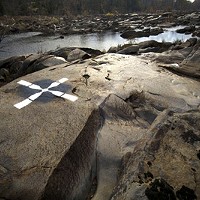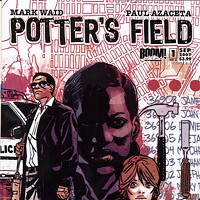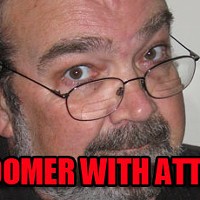He had the power
At the revival with James Brown
One of the advantages of being a baby boomer is having been able to see many legendary musicians during your youth. The drawback, of course, is that now you can't stay up late enough to catch shows by new artists, much less jump around to music for a couple of hours. But it's a trade-off I can live with, since we boomers were around when musical gods walked the earth.
The first big concert I ever attended was a show by James Brown and the Famous Flames -- it was late '63 or early '64, at the Charlotte Coliseum (now Cricket Arena), or maybe it was at Park Center (Grady Cole Center). I don't remember -- another boomerdom drawback -- but the show itself is something I'll never forget. I was 14, and I have no idea how the 20-year-old brother of one of my friends convinced my mom to let me go with them to see James Brown, but thank God it happened, because it was one of the greatest eye-openers of my life.
We lived 50 miles from Charlotte, and although I was lucky to be part of a family that didn't bring the era's racial bigotry into our home, legal segregation had kept me from knowing many black people other than as passing acquaintances. I escaped the stifling small-town atmosphere by reading books and, mostly, by listening to the radio and buying records. So I knew who James Brown was. But at the same time, I didn't know who James Brown was.
There may have been 100 whites at the Charlotte concert, but I doubt it. Probably more like 50. At any rate, the place was packed, and the show was way beyond enthralling. Lights flashed onto the stage and reflected off the matching black-with-red-trim suits worn by members of Brown's churning band, the men moving in unison, the horns twirling around index fingers simultaneously. After playing a couple of instrumental numbers, the band stopped, and the inside of the building went completely dark. Screams split the air, and I jerked upright, startled.
The band, their sound now coming out of the dark, started playing again. A spotlight hit the stage, and the young James Brown strutted out in a blue sharkskin suit, grabbed the mike, twirled around and, in perfect time with the band, wailed, "If you le-e-e-ave me, I'll go crazy ... " and Jesus Christ, the whole place went completely insane. A primal roar sent a charge through the building as women screamed at the tops of their lungs and a crowd of them rushed the stage. Before the first song was over, more than a dozen pairs of panties were scattered on the floor around a beaming James Brown.
It went on like that for about an hour and a half, the music and the crowd building in intensity, from what seemed like a 10-minute version of "Night Train," through wrenching ballads like "Prisoner of Love," which Brown partly sang on his knees, to the final, cape-wielding melodrama of "Please Please Please." The show left Brown and the audience satiated and exhausted, like we'd been through some kind of emotional orgy, or, more to the point, a revival meeting.
To say that I had never seen anything like it before hardly describes what I felt. I was like Alice, falling down the rabbit hole into a whole new world. The spectacle was spellbinding. The power of the music's hold over the audience was a revelation. More than that, simply being in the middle of that explosive, communal expression of black American joy was a thrill that took me completely by surprise -- and ended any chance that I'd succumb to my environment's racial ignorance.
I thought of all that when James Brown died on Christmas Day, and the accolades started pouring in: Icon of American culture (true). Symbol of black pride (true). Originator of soul music (not really; that would be Ray Charles, although JB did a lot to help it blossom). The praise that struck the truest chord, however, was that Brown was practically without peer as an influence on American, and thus the world's, music.
They say that the deaths of famous people come in threes. If so, the three we saw a couple of weeks ago -- James Brown, Gerald Ford, and Saddam Hussein -- have to be the oddest trio of celeb mortality on record. But only one of them will have a lasting significance.
A hundred years from now, the awful tyrant Hussein will be nothing more than a footnote in history.
Gerald Ford's death brought the standard official accolades given all recently deceased former Presidents as saintly statesmen. The truth is that he was a banal politician who deeply disillusioned tens of millions of Americans when he pardoned Nixon. He, too, will be forgotten a hundred years -- heck, probably one year -- from now.
But as for James Brown, whose staggered beats and rhythms opened up spaces in American music that are still being filled -- and who bowled over that Southern white kid 40-odd years ago -- you can bet they'll know who he was a hundred years from now, and maybe longer.
Speaking of 5.00000
-
Body Talk
Dec 12, 2007 -

What If the Water Runs Out?
Dec 12, 2007 -

Comic Proportions
Dec 12, 2007 - More »
Latest in Boomer with Attitude
Calendar
-

Wine & Paint @ Blackfinn Ameripub- Ballantyne
-

Angeline’s Featuring Sciandri Family Vineyards @ Angeline's
-

Aria Tuscan Grill Featuring Allegrini - Charlotte Wine + Food Week @ Aria Tuscan Grill
-

Charlotte Wine + Food Week Presented by Truist @ Charlotte, NC
-
 Charlotte Knights vs. Syracuse Mets @ Charlotte Knights
Charlotte Knights vs. Syracuse Mets @ Charlotte Knights
-
A Beginners Guide To Fishing 1
-
Question the Queen City: Charlottetown Mall and its nearly forgotten time capsule
A child's coffin contained relics of the past that stood neither the test of time nor the elements
-
Crazy Times Require the Sanity of Women
The march continues










